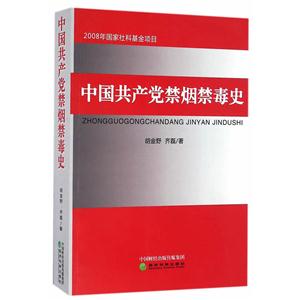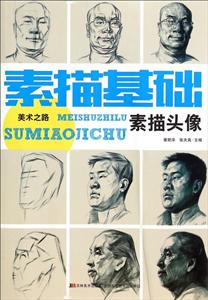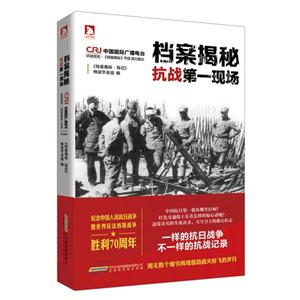英国工人阶级银幕形象及其文化诠释

|
英国工人阶级银幕形象及其文化诠释作者:石同云 开 本:16开 书号ISBN:9787310047727 定价:28.0 出版时间:2015-04-01 出版社:南开大学出版社 |
英国工人阶级银幕形象及其文化诠释 内容简介
《英国工人阶级银幕形象及其文化诠释(英文版)》通过文本诠释和意识形态解析相结合,研究20世纪50年代至今的英国社会现实主义电影对工人阶级身份特性的展示,以此来审视英国工人阶级命运的变化。它探讨不同年代工人阶级题材电影的主要主题,比较和对比银幕展示的工人阶级身份特性的延续和变化,并从英国文化研究视角对变迁加以分析,探究工人阶级形象背后隐含的思想意识形态和文化抵抗。著作指出,工人阶级身份在银幕上的展示呈现出鲜明的时代特色,其形象在不同时代的变化也反映出了主流意识形态的变化。从“骄傲”到“羞耻”,这种形象的变化反映出英国战后社会基本思潮从福利平等主义到新自由主义文化的根本性转变。
英国工人阶级银幕形象及其文化诠释 目录
CHAPTER I. INTRODUCTIONThe Significance of Class and Film Representation
British Social Realism Tradition
Research Methodology
Literature Review
Structure
CHAPTER II. BRITISH CULTURAL STUDIES ON CLASS
AND WORKING CLASS
Culture: From Elitism to "A Whole Way of Life" of People
Althusser on Ideology and Gramsci on Hegemony
Stuart Hall and the CCCS
The Marginalization of Class and the Moral Significance for the
Study of Class
identity and Representation
CHAPTER III. CLASS AND WORKING CLASS IN BRITAIN:
SOCIOLOGICAL AND HISTORICAL UNDERSTANDING..
Defining and Classifying Class and Working Class
Looking at Class: Britain--A Class or Classless Society?
The Rise and Decline of British Working Class
The "Underclass" and Devaluation
CHAPTER IV. WORKING CLASS IDENTITY IN NEW
WAVE FILMS
From the Grierson Documentary Movement to the New Wave
Room at the Top (Jack Clayton, 1959)
Saturday Night and Sunday Morning (Karel Reisz, 1960)
Working-class Identity in New Wave Films: Theme Analysis
CHAPTER V. WORKING-CLASS IDENTITY IN FILMS OF
LOACH, LEIGH AND FREARS
Thatcherism and the Working Class
Mike Leigh and High Hopes (1988)
Class and Race in Stephen Frears' My Beautiful Laundrette (1985).
Ken Loach and Sweet Sixteen (2002)
CHAPTER VI. WORKING-CLASS IDENTITY IN 1990s
SOCIAL REALIST COMEDIES
Brassed Off(Mark Herman, 1996)
The Full Monty (Peter Cattaneo, 1997)
Continuity and Change in Working-class Identity: Theme
Analysis
CHAPTER VII. IDEOLOGY, CULTURE, IDENTITY:
ANALYSIS OF WORKING-CLASS REPRESENTATION
The New Wave Representation: The Ideology of Affluence and
the New Left
Films of the 1980s, 1990s and 2000s: Neo-liberalism and
Working-class Identity
For Williams' "Equality of Being": The Need of Cultural Policy
Support
CHAPTER VIII. CONCLUSION
REFERENCES
英国工人阶级银幕形象及其文化诠释 节选
《英国工人阶级银幕形象及其文化诠释(英文版)》: The union's inflationary wage claims and destructive strikes in thelate 1970s provided Thatcher with good excuses to take radical actions torestrain union power. Between 1980 and 1993, eight major Acts ofParliament were passed to weaken and marginalize trade unions step bystep, e.g. the Employment Act (1982) and the Trade Union Act (1984)which restricted the operation of closed shops and made trade unions moreaccountable for their actions. In short, the Acts outlawed the closed shop,curbed picketing, banned sympathetic solidarity strikes and secondarypicketing, imposed the use of secret ballots for the election of unionleaders and of postal ballets for the approval of strikes, and required tradeunion officials to be elected periodically. The highly unionized publicsector was attacked, with such policies as the pdvatization of nationalizedindustries, the closure of coal mines, and the restructuring of welfareservices like the National Health Service, which indirectly underminedtraditional systems of cc~lective bargaining. (Abercrombie & Warde, 2000,p. 85; Taylor, 2005, p. 383; Roberts, 2001, p. 102) The bitter, year-long, coal-miners' strike of 1984-5 resulted from thedecision of the National Coal Board to close 20 mines leading to 20,000miners losing their jobs. The strike split the National Union ofMineworkers and ended .in total failure for the miners. The strikers couldnot mobilize effective support in other sections of the working class due tothe ban of sympathetic actions. Mrs Thatcher responded with savingsubstantial coal beforehand, importing much coal and oil, and subsidizingother energy. She won the nation's admiration for her toughness inconfronting and defeating the left-wing, uncompromising, and militantminers' union leader Arthur Scargill. The event, added with a rise inunemployment in the declining manufacturing industries, led to a loss ofabout one-fourth of the country's union membership. ……
文化 文化理论
在线阅读
- 最新内容
- 相关内容
- 网友推荐
- 图文推荐
| [高考] 2022 西安电子科技大学《软件工程》大作业答案 (2022-04-25) |
| [家长教育] 孩子为什么会和父母感情疏离? (2019-07-14) |
| [教师分享] 给远方姐姐的一封信 (2018-11-07) |
| [教师分享] 伸缩门 (2018-11-07) |
| [教师分享] 回家乡 (2018-11-07) |
| [教师分享] 是风味也是人间 (2018-11-07) |
| [教师分享] 一句格言的启示 (2018-11-07) |
| [教师分享] 无规矩不成方圆 (2018-11-07) |
| [教师分享] 第十届全国教育名家论坛有感(二) (2018-11-07) |
| [教师分享] 贪玩的小狗 (2018-11-07) |






